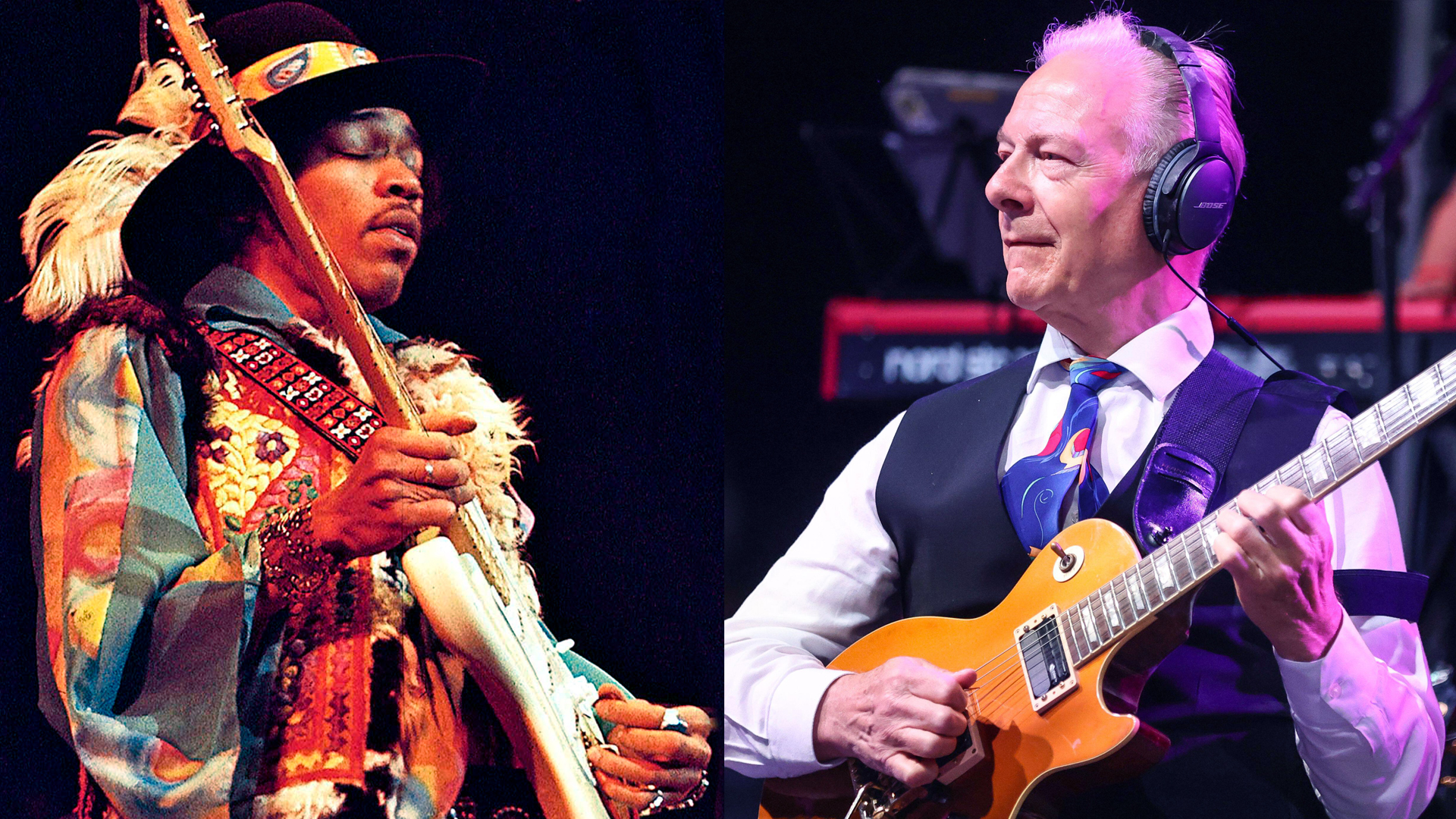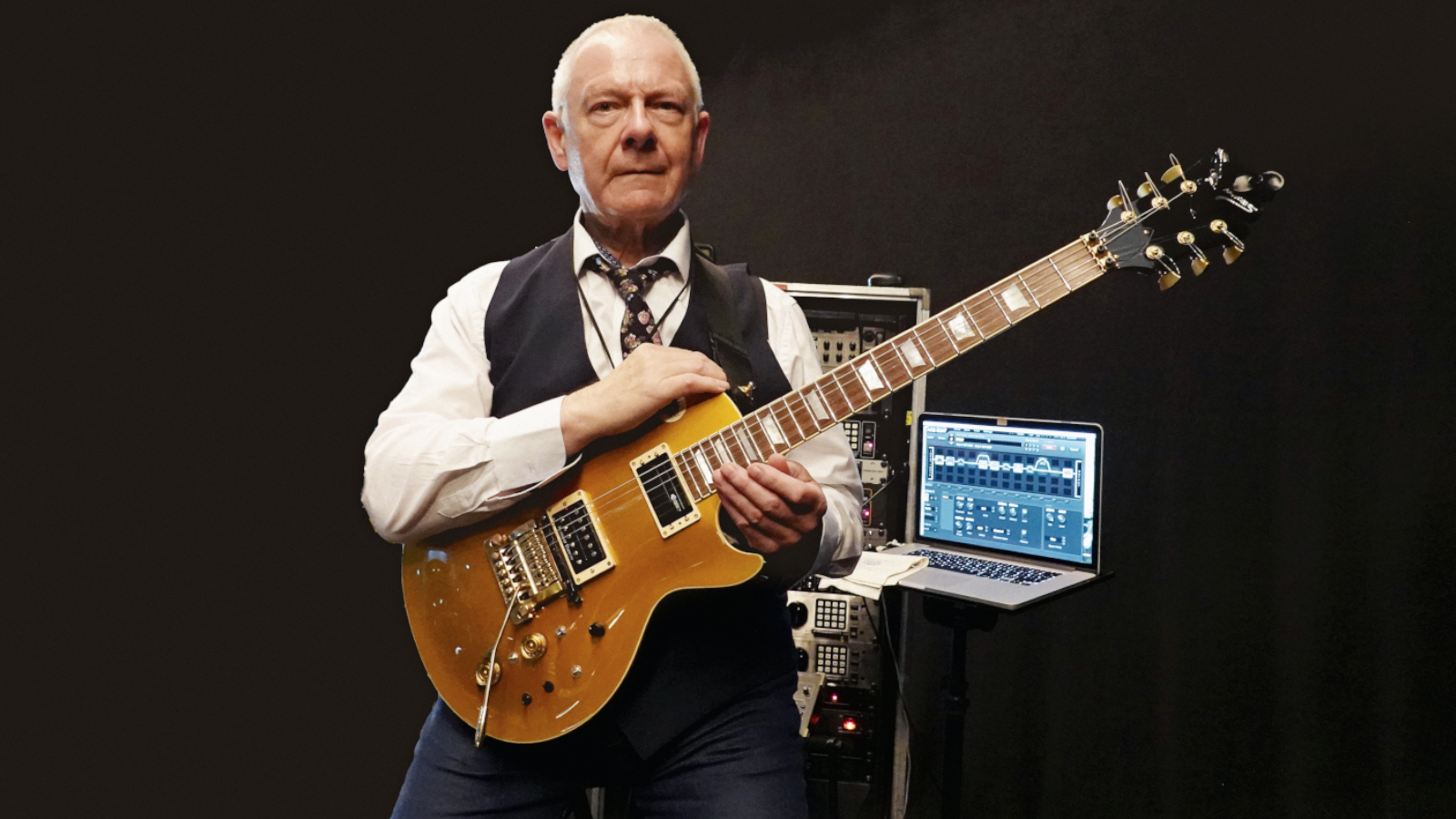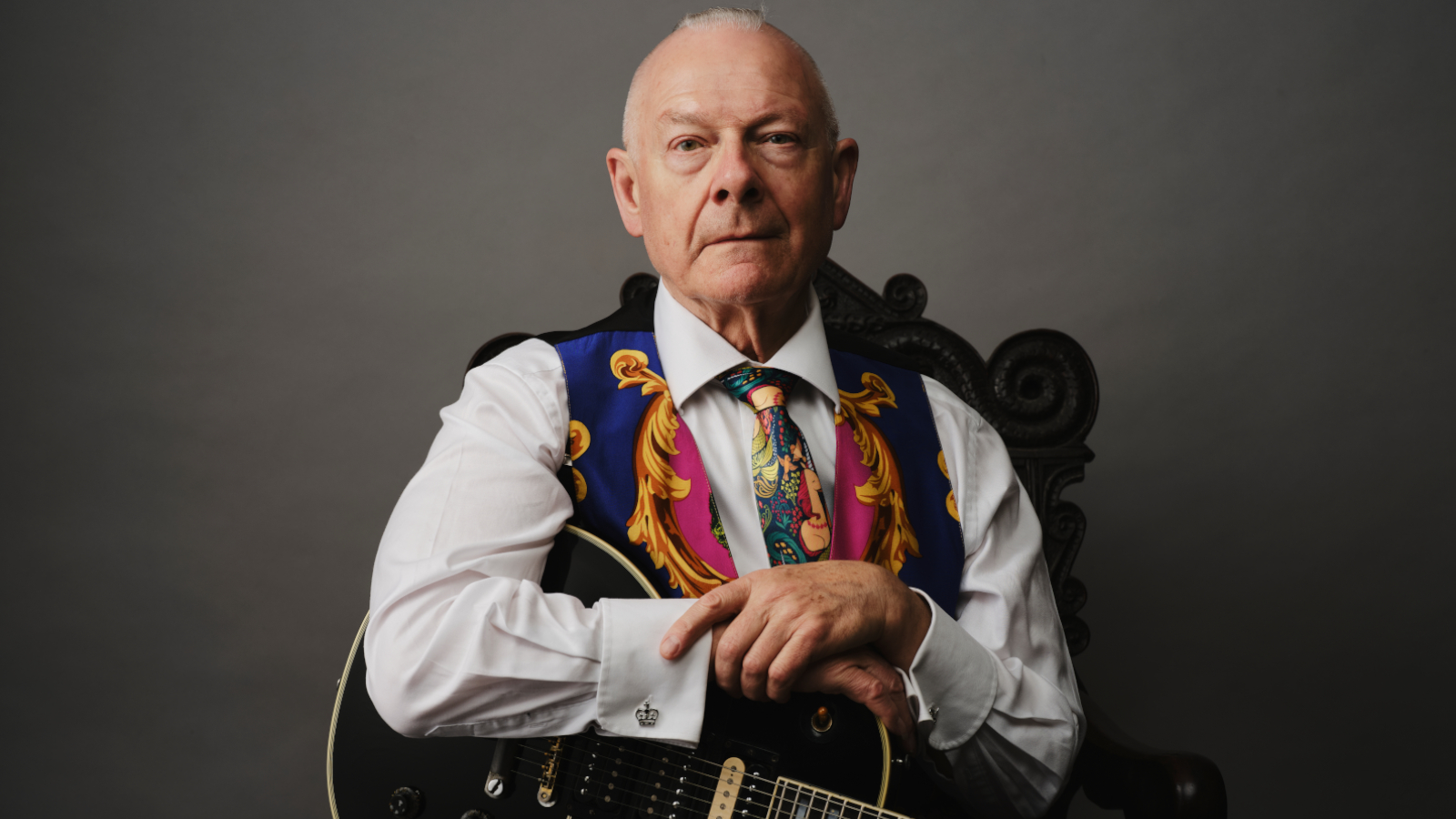“I don't think Jimi Hendrix was a guitarist. Eric Clapton is excessively tedious.” Robert Fripp on his 1960s contemporaries — and the guitarist whose playing he thought was “good fun”
Fripp's past comments highlight the left-field ideas that make him an original

All the latest guitar news, interviews, lessons, reviews, deals and more, direct to your inbox!
You are now subscribed
Your newsletter sign-up was successful
Robert Fripp is an original who always brings something new to the instrument and gets something entirely unique out of it in return.
Rising to prominence in the late ‘60s, when Eric Clapton was deemed a deity and blues guitar was dominating the charts, Fripp separated himself from the pack with a left-field approach to songwriting and what could be achieved on guitar. His talents earned him praise from high-profile supporters, with no less than Jimi Hendrix once hailing King Crimson as the best band in the world.
But a look at Fripp's early comments about guitar and guitarists reveals that he wasn't much of a diplomat when it came to his peers.
“I've never really listened to guitarists, because they've never really interested me,” he told Guitar Player in 1974.
It was a year that yielded Starless and Bible Black and Red, two of King Crimson's landmark albums. Fripp was at the top of his game.
At that time, Clapton — following the demise of Cream and subsequent rise and fall of Blind Faith and Derek & the Dominos — was two albums into his solo career. Jimi Hendrix was four years gone, but a raft of stellar players had risen to take his place as guitar gods for the 1970s
Even so, Fripp had little to say about his instrument's lofty place in the world of popular music.
All the latest guitar news, interviews, lessons, reviews, deals and more, direct to your inbox!
“I think the guitar is a pretty feeble instrument,” he continued. “Virtually nothing interests me about the guitar.”
I saw Cream live once and I thought they were quite awful. Clapton's work since, I think, has been excessively tedious.”
— Robert Fripp
Fripp's contrarian views on the instrument were shaped in childhood, where he was seduced by “the early Sun records with Scotty Moore” before he discovered traditional jazz at the age of 15. By then, he was no longer going with the cultural currents, a bias that helped him forge an identity of his own rather than one based on earlier genres and players. .
“I haven't been influenced by Hendrix and Clapton in the way that most people would say it,” he explained. “I don't think Hendrix was a guitarist. I very much doubt if he was interested in guitar playing as such. He was just a person who had something to say and got on and said it.”

Fripp had no similarly kind words for Clapton.
“Clapton I think is mostly quite banal, although he did some exciting things earlier in his life with Mayall. I saw Cream live once and I thought they were quite awful. Clapton's work since, I think, has been excessively tedious.”
Such comments come as no surprise to Steven Wilson. As the remixer behind several King Crimson anniversary reissues, he says Fripp's contrarian nature has often put him at odds with those around him.
“Every single Crimson record that’s ever come out was a battle,” Wilson states. “A battle between Robert and the rest of the band in some cases, a battle between Robert and the record company or the management or finances or touring schedules. Everything was against them, like the press telling them they were washed up.”
Rather than buckle to the whims of mainstream audiences, Fripp doubled down on his unique approach.
“I learned that a lot of Crimson records were similar to jazz and avant-garde jazz in the British jazz movement in the early '70s,” Wilson continues. “You realize that what made those records thrilling is that fact that the band were flying by the seat of their pants a lot of the time. The music was on the verge of falling apart in some respects.”
It’s interesting, then, that the one guitarist who escaped Fripp’s crosshairs during his 1974 GP interview was a guitarist that similarly challenged the status quo with his music: Jeff Beck, who was making waves at the time with his album Blow by Blow.
“Jeff Beck's guitar playing I can appreciate as good fun,” Fripp said. “It's where the guitarist and ‘poser-cum-ego tripper-cum-rock star-cum entertainer’ becomes all involved in the package. It's good fun, it's quite enjoyable, very exciting. I wish him all the best of luck.”

As the blues gave way to shred mania in the 1980s, Eddie Van Halen became the new Clapton, the new poster boy of the electric guitar, and the next player that every other guitarist aspired to be like.
Reflecting on the impact that had on the guitar scene last year, Wolfgang Van Halen theorized that his Dad “kind of ruined the musical landscape” during that period.
“Because,” he explains, “instead of everybody wanting to find out who they are, they wanted to be that.”
A freelance writer with a penchant for music that gets weird, Phil is a regular contributor to Prog, Guitar World, and Total Guitar magazines and is especially keen on shining a light on unknown artists. Outside of the journalism realm, you can find him writing angular riffs in progressive metal band, Prognosis, in which he slings an 8-string Strandberg Boden Original, churning that low string through a variety of tunings. He's also a published author and is currently penning his debut novel which chucks fantasy, mythology and humanity into a great big melting pot.


